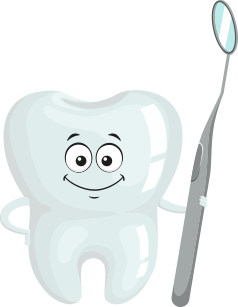What is Gum Disease and How to Prevent Teeth Loss
Do your gums sometimes bleed when you brush or floss? Have you noticed gum swelling or bad breath that won’t go away? These may be early signs of a quiet but bad infection called gum disease. Gum disease can lead to loose teeth, tooth loss, and other health issues over time, if it is not treated promptly.
Fortunately, gum disease can often be prevented with proper oral hygiene and care. This blog post will discuss the symptoms and types of gum disease, the different causes of gum infections, and tips for keeping your gums healthy.
What is Gum Disease?
Gum disease, also known as periodontal disease, is an infection of the tissues and bones that surround and support the teeth. If left untreated, gum disease can lead to pain, tooth loss, and other health issues. Gum disease occurs when plaque, a sticky film of bacteria, builds up on the teeth.
The bacteria cause inflammation and infection that destroys the gums and bone if left unchecked. In mild forms, gum disease causes redness, swelling, and bleeding gums. In more severe infections, the gums pull away from teeth, and infected pockets form, leading to tooth loss if not treated promptly.
Symptoms of Gum Disease
The early stage of gum disease is called gingivitis. Symptoms include:
Infographic image content
- Red, swollen, or tender gums
- Bleeding when brushing or flossing
- Bad breath
- Receding gums
- Loose or shifting teeth
As the disease advances, there may be no pain even as the infection damages tissue and bone. That’s why regular dental exams at a gum treatment clinic in Chennai are vital to detect and treat problems early.
Causes of Gum Disease
Gum disease is generally caused by plaque – a sticky film of bacteria that constantly forms on the teeth. If plaque isn’t removed by brushing and flossing daily, the bacteria can irritate and infect the gums. The bacteria triggers inflammation that destroys gum and bone tissue if left untreated.
Certain risk factors also make gum disease more likely:
- Poor oral hygiene
- Smoking or tobacco use
- Diabetes
- Medications that cause dry mouth
- Genetic susceptibility
Types of Gum Disease
There are several stages of gum disease:
- Gingivitis: This mild and reversible form causes red, swollen gums that may bleed easily. With proper oral hygiene, it can often be reversed.
- Periodontitis: In this more serious version, the gums and bone pull away from the teeth, and pockets form that can become infected. It requires dental treatment to control. The periodontitis symptoms and causes are similar to normal gum diseases.
- Necrotizing Periodontal Disease: This severe infection has painful symptoms, including gum tissue that appears bright red, ulcerated, and sloughs off easily with mild touching. Immediate dentist care is vital to stop rapid tissue destruction.
Each progressive stage causes greater damage and is more challenging to treat, which is why early detection and prevention efforts are key.
How to Prevent Gum Disease Naturally?
The best way to avoid gum infections is to remove plaque daily through brushing, flossing, and regular cleanings at your dentist’s office. You can further lower your gum disease risk with these tips:
Brush teeth thoroughly twice daily: Carefully brush near the gum lines to disrupt plaque and sweep away sticky film from tooth surfaces. Electric toothbrushes may help with plaque removal for some.
Floss daily: Use a gentle rubbing motion to floss between tight teeth spaces and just below the gum line to remove food particles and plaque that brushing misses.
Avoid sugary or acidic foods and drinks: Sugars and acids feed the plaque bacteria and inflamed gums. Limit sugary sodas, sports drinks, candies, and acidic foods like citrus to protect oral health.
Quit smoking and tobacco use: Smoking increases gum disease risk significantly by hiding early symptoms and suppressing the immune response to fight infection. Quit all forms of tobacco use to avoid this preventable oral health risk.
Get regular dental cleanings and exams: Even if you have no natural teeth, a dental cleaning every 6 months removes hard deposits a toothbrush can’t reach. A dental exam gum treatment clinic in Chennai will detect early gum disease and cavities for prompt treatment.
Summary
Gum disease develops gradually and often without pain as the gums become infected and inflamed. Plaque bacteria destroy gum tissue and supporting bone if left unchecked. Fortunately, regular tooth brushing and flossing, healthy nutrition choices, and twice-yearly dental cleanings and exams can prevent painful gum disease and associated tooth loss in most people.
So, if you are looking for Gum Disease Treatment near me in Chennai, Radiant Dental Care is here to help. Our team of expert dentists can provide you with the best treatment required for your oral health. Book an appointment today to learn more about gum treatment cost in Chennai and other services.
FAQs
What are the first signs of gum disease?
The earliest signs are red, swollen, or tender gums that bleed when brushing or flossing. You might also notice bad breath or receding gums.
What causes gum infections?
Gum disease is usually caused by plaque, a sticky film containing bacteria. Without daily brushing and flossing, plaque builds up, irritates gums, and triggers infection.
Is gum disease serious?
Yes, if untreated, gum infections can destroy gum tissue and bone, causing tooth loss or abscesses. Gum disease has even been linked to other health issues like heart disease or stroke risk.
How do I prevent gum disease naturally?
Brush teeth thoroughly twice a day, floss daily, avoid sugary foods and drinks that feed plaque bacteria, quit smoking, get regular dental cleanings every 6 months.
What is the treatment for gum disease?
Early-stage gum disease can often be reversed through improved daily brushing and flossing. More advanced cases require dental procedures to remove plaque below the gum line and infected tissue. Prompt, professional treatment is key to saving teeth.

 +91 9513446186
+91 9513446186
